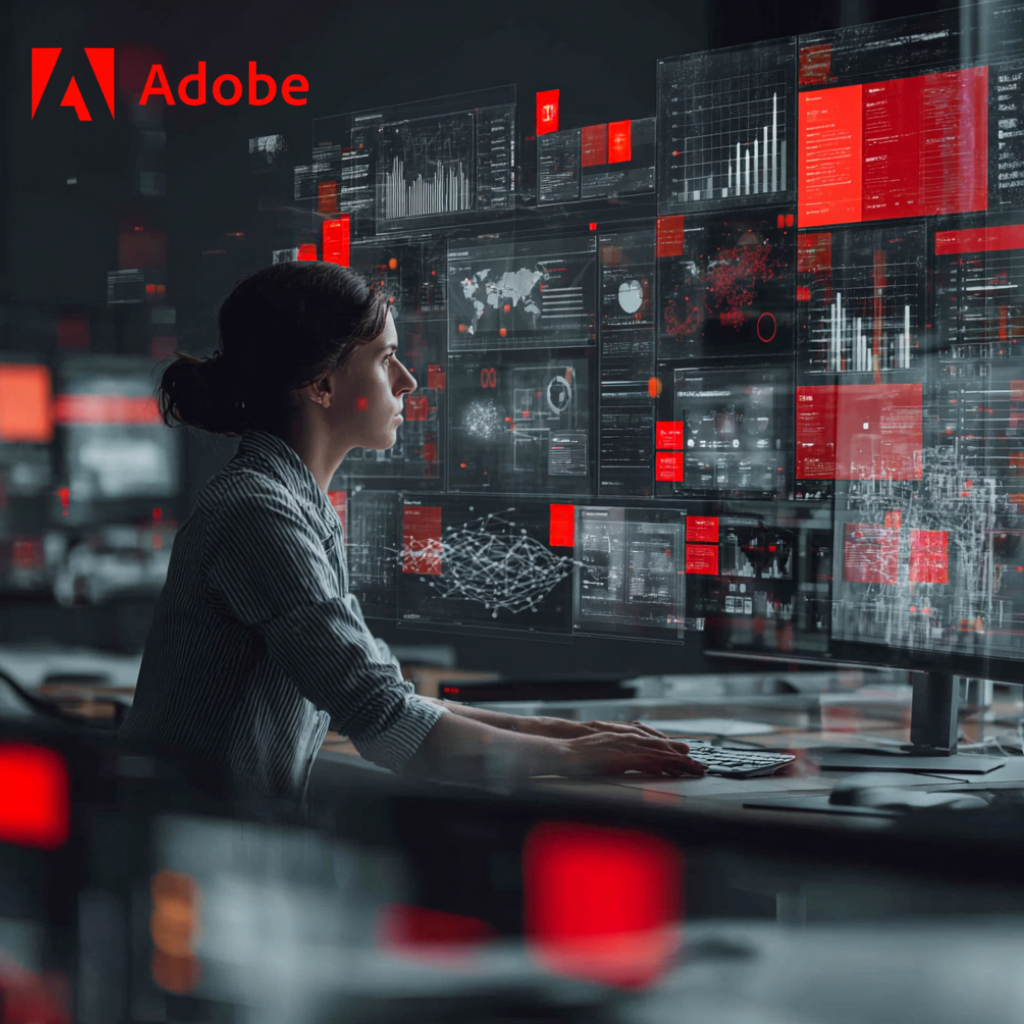A new approach to SEO in the age of generative AI
How can brands still stand out in an age of saturated content? Adobe offers a strategic answer with LLM Optimizer, an SEO tool based on generative artificial intelligence. Integrated into the Adobe Experience Cloud suite, this new tool promises to align marketing content with search engine queries in real time, while respecting the brand’s tone of voice.
LLM Optimizer: what’s it all about?
LLM Optimizer leverages the capabilities of Large Language Models (LLMs) to generate, adapt and evaluate SEO content. Unlike traditional tools, it doesn’t just recommend keywords or evaluate readability scores. It acts as an editorial co-pilot capable of :
- Automatically generate titles, meta-descriptions and snippets;
- Rewrite paragraphs to better match research intent ;
- Suggest contextual SEO improvements based on real-time performance data;
- Adapt to every business sector, thanks to customizable models.
Adobe insists on stylistic consistency and brand voice, guaranteed by training on the company’s existing content. The tool can also detect and correct biases or imprecise wording that could damage the brand’s image.
A response to the new challenges of SEO
With the growing integration of AI into search engines (Google SGE, ChatGPT Search, Perplexity), traditional SEO is being reconfigured. According to a study by BrightEdge (2024)1 :
- 68% of SEO experts believe that search engines now favor answers generated from AI-optimized content.
- 72% of brands say they lack the tools to adapt their content to conversational search interfaces.
This is where Adobe intends to position itself, offering a solution capable of optimizing content not only for traditional search engines, but also for conversational agents and AI response systems.
Use case: towards conversational and contextual SEO
Among the first experimental results presented at Adobe Summit 2025:
- A B2B company saw a 27% increase in organic click-through rates after LLM Optimizer automatically rewrote its blog posts.
- In just a few minutes, a cosmetics brand was able to generate over 250 multilingual product sheets optimized for voice search, reducing its time-to-market by 60%.
- A SaaS publisher used the tool to align its content with queries from ChatGPT Search, increasing qualified traffic from conversational engines by 34%.
Towards data-driven SEO and generative AI
LLM Optimizer is part of a major trend: thestrategic automation of content marketing. According to Forrester (2025)2 :
- 79% of marketers plan to integrate generative AI tools into their SEO strategy by 2026 ;
- Brands already using AI for content optimization see an average 38% increase in organic visibility.
Adobe is leveraging both the power of its behavioral data from Adobe Analytics, and the linguistic capabilities of LLM to dynamically adjust content according to user behavior.
A changing role for SEO professionals
With tools like LLM Optimizer, the SEO consultant’s job is evolving towards a more strategic posture: piloting prompts, ethically supervising generated content, defining adaptive editorial lines. It’s no longer a question of word-by-word optimization, but of designing intelligent content ecosystems, capable of self-adjusting to the web’s evolutions.
Towards AI-driven brand content
Adobe LLM Optimizer is more than just another optimization layer: it represents a new stage in the convergence of branding, SEO and artificial intelligence. A more fluid, personalized and contextual approach to SEO, where content becomes dynamic, adjustable, and potentially auto-generated on a large scale.
This development also raises the question of content traceability and editorial responsibility, which need to be integrated right from the design stage of AI strategies.
References
1. BrightEdge. (2024). State of Generative SEO.
https://www.brightedge.com/resources/webinars/state-of-generative-seo
2. Forrester. (2025). AI in Marketing: Adoption, Value and Challenges.
https://go.forrester.com/research/

